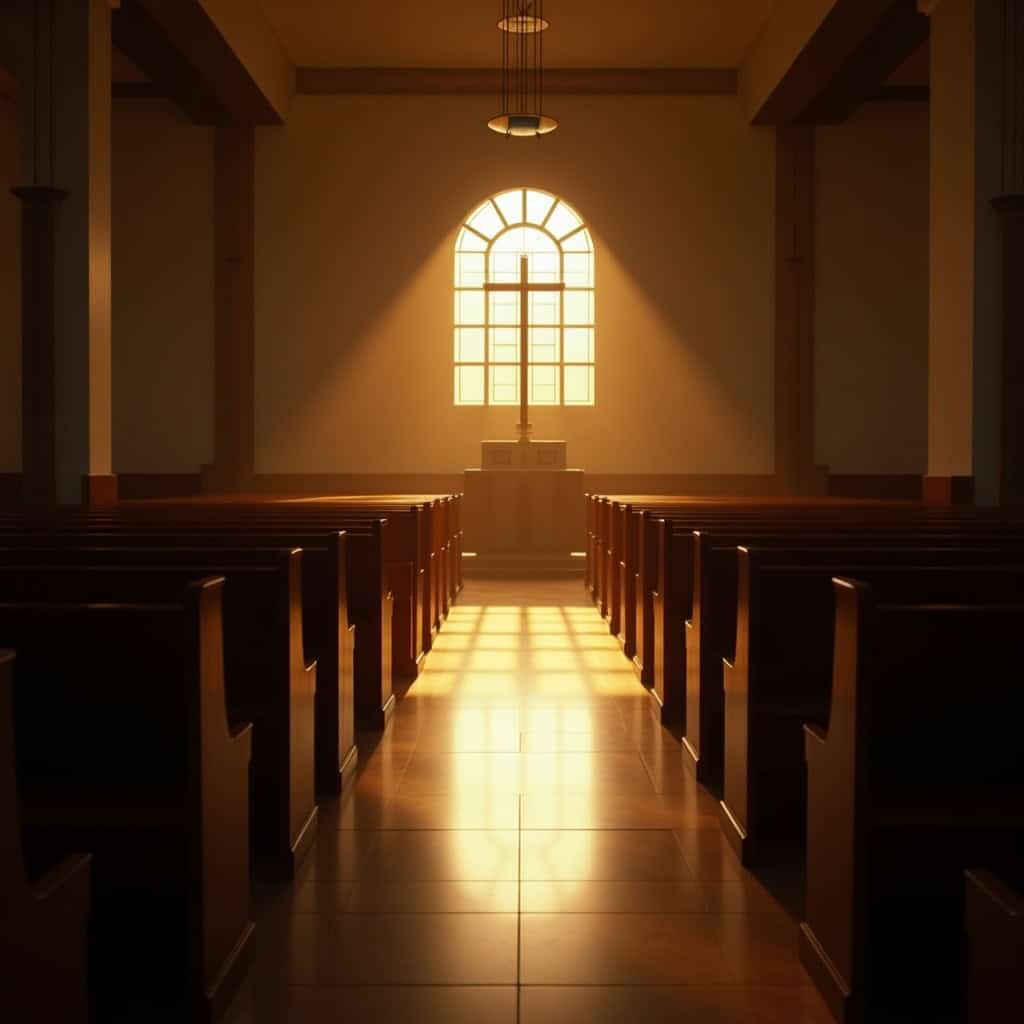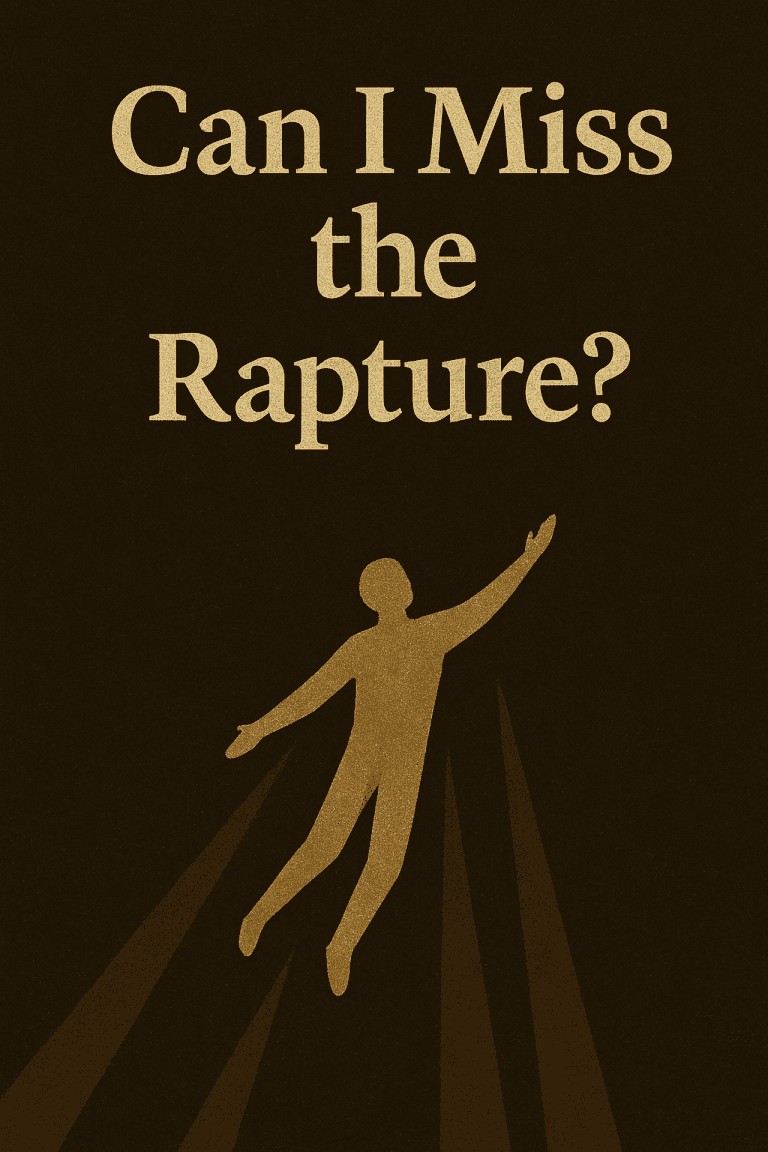Have I Committed the Unforgivable Sin? What Scripture Really Says
You’ve sinned again—and this time, it feels different. Heavier. Final. And the question hits you like a wave you didn’t see coming: Have I committed the unforgivable sin? It’s not a question of curiosity. It’s fear. The kind that settles deep and won’t let go. The kind that makes you wonder if God’s mercy has finally run out.

That fear is real. But so is the answer. And the Word of God does not leave it vague.
So let’s stop guessing and open the Scriptures. Because if you’ve ever asked, “if you’ve committed the unforgivable sin, you’re not alone—and you’re not without hope.
What Is the Unforgivable Sin?
Jesus speaks of it plainly in Matthew 12:31–32:
“Therefore I tell you, every sin and blasphemy will be forgiven people, but the blasphemy against the Spirit will not be forgiven.”
There it is—the warning that has haunted tender consciences for generations: the unforgivable sin. But what is it exactly?
In context, Jesus had just healed a demon-oppressed man. The Pharisees saw the miracle with their own eyes. And still, they claimed the power came not from the Holy Spirit—but from Satan.
They weren’t confused. They were hardened. They had front-row seats to the work of God and called it demonic. They didn’t just resist the truth. They slandered it. That’s what blasphemy against the Holy Spirit is. And that’s why Jesus said it would not be forgiven.
Many believers assume that repeated sin or moments of doubt might mean they’ve lost salvation or crossed a line—but that’s not what Jesus was talking about. If you’ve ever wondered, “Have I committed the unforgivable sin?”, you’re not alone. But Scripture gives a far more specific definition.
Blasphemy Against the Holy Spirit: Why It’s So Serious
Let’s be clear: this is not about uttering a certain phrase or taking God’s name in vain. It’s not about falling into sin repeatedly. It’s not even about struggling with doubt.
Blasphemy against the Holy Spirit is a deliberate, settled, and final rejection of the truth. It’s the refusal to believe in Christ in the face of undeniable evidence. It’s not ignorance—it’s willful, hardened rebellion against the only One who can save.
Hebrews 6 describes people who have tasted the heavenly gift—not received it fully. They were exposed to truth, surrounded by the work of God, maybe even moved by it. But in the end, they walk away—not by accident, but by settled rejection. That’s what cannot be forgiven—not because God’s grace falls short, but because they want no part of it.
If You’re Asking, That’s a Sign of Life
So let’s return to the question: have I committed the unforgivable sin?
If you’re asking that with grief, conviction, or trembling—you haven’t.
The person who commits that sin isn’t asking. They aren’t concerned. They aren’t worried about their soul. Those people have made peace with unbelief and hardened themselves against the only source of mercy available to them.
The very question—have I committed the unforgivable sin—is one the Pharisees never asked. But repentant sinners do. And that’s the difference.
Conviction, on the other hand, is a gift. And the fear that you may have sinned too greatly is often a sign that the Spirit is still at work in you. Not to condemn—but to draw you near.
Can God Forgive Me After What I’ve Done?
Yes. Without hesitation.
The same Jesus who warned about the unforgivable sin also said,
“Whoever comes to Me I will never cast out” (John 6:37).
That includes the adulterer. The addict. The prodigal. The Christian who falls again and again and wonders if God has given up on him. That includes you.
Ask yourself: Are you still grieved by sin? Still running to the cross? Still pleading for mercy?
Then God has not cast you out. He is not done with you. His grace reaches lower than your shame.
Satan Wants You Paralyzed by Fear
The accuser knows how to twist Scripture. He did it in the garden. He did it in the wilderness. He still does it today.
If the enemy can’t drag you into pride, he’ll try to drown you in despair. He’ll weaponize this doctrine to keep you shackled in fear. He’ll whisper, “Have I committed the unforgivable sin?”—but without ever letting the gospel answer.
But here’s what the Word says:
“There is therefore now no condemnation for those who are in Christ Jesus” (Romans 8:1).
That’s not a feeling. That’s a fact.
So when doubt rises, don’t look inward. Don’t replay your sins like a courtroom exhibit. Don’t wait to “feel forgiven.” Look to Christ. The cross didn’t miss a single sin.
So Have You Committed the Unforgivable Sin?
If you are asking that question in sorrow, in fear, in desperation—no.
You have not committed the unforgivable sin.
Because you are still responding to the Spirit—not rejecting Him.
The unforgivable sin is not falling again. It’s not struggling. It’s not failing to live up to your own standard. It’s not even seasons of doubt or despair. It is full, final, hardened rejection of the Spirit’s witness to Christ. And if you’re afraid you’ve done that, you haven’t.
You may be broken. You may feel unworthy. But that’s exactly who Jesus came to save.
Cling to the Cross, Not Your Track Record

God doesn’t forgive those who earn it. He forgives those who come to Him by faith. And He never withholds mercy from the one who cries out.
So next time the enemy whispers, “Have I committed the unforgivable sin?”, you answer with the truth:
No—I’ve run to the cross. And Christ will never cast me out.
No matter how loud the lies sound, no matter how recent your fall, no matter how many times the question “Have I committed the unforgivable sin?” haunts your mind—Christ’s mercy still speaks louder.
Want to keep walking in the truth that holds?
Grab your free guide: Chosen by Grace: A Simple Guide to God’s Sovereignty in Salvation.
Walt Roderick is a Christian writer who cares more about biblical clarity than online applause. He writes to strengthen believers and confront spiritual drift.






